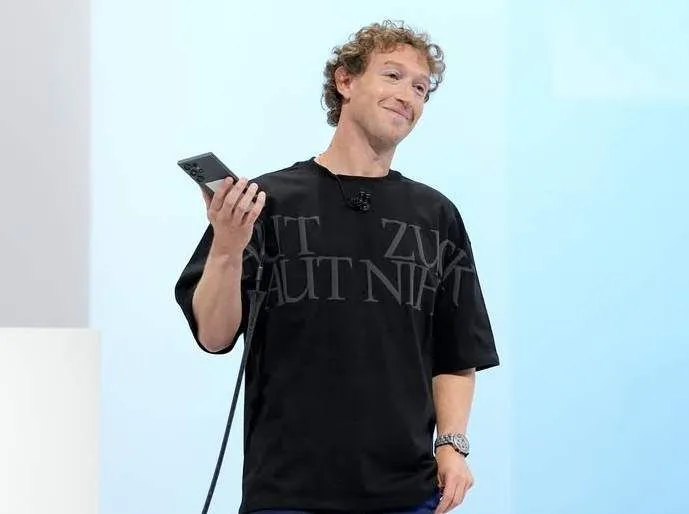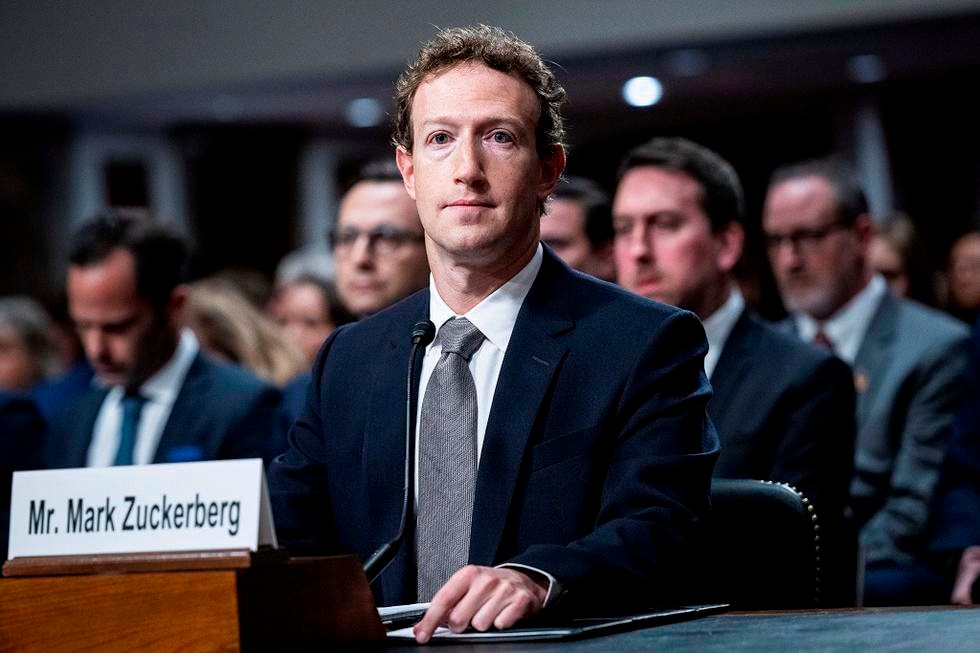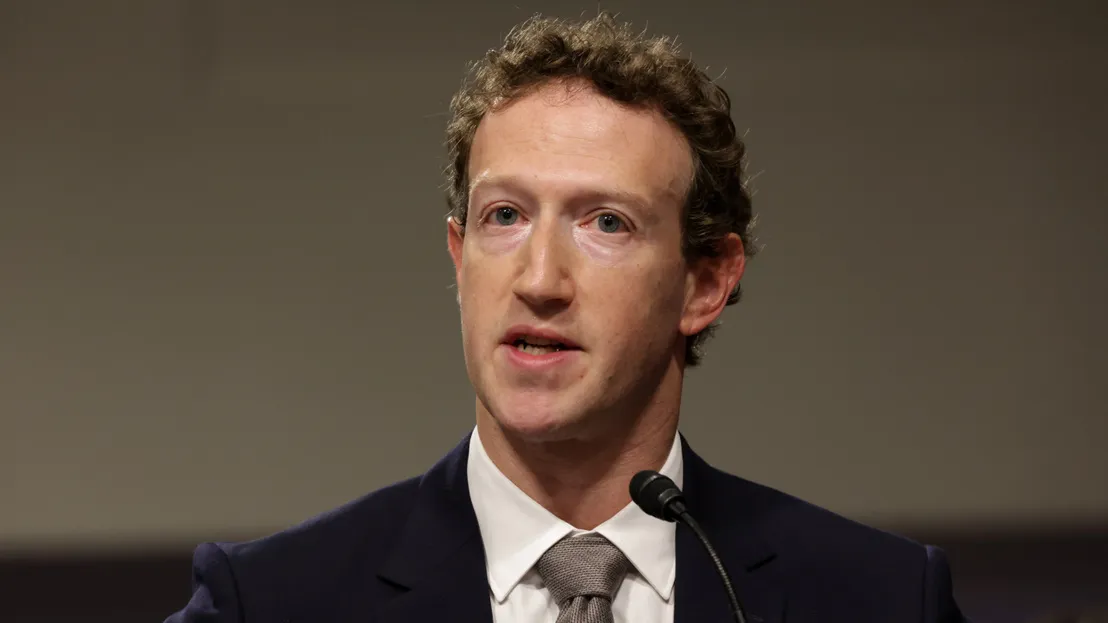

Tech Billionaire Mark Zuckerberg Launches Campaign to Go Beyond Smartphones
Zuckerberg’s Vision for a Post-Smartphone World
Mark Zuckerberg, the co-founder and CEO of Meta, has long been known for his ambitious vision of the future. In his latest announcement, he unveiled a campaign aimed at moving beyond traditional smartphones, envisioning a future where wearable technology, artificial intelligence, and augmented reality transform how humans interact with digital environments. Zuckerberg emphasized that smartphones may soon become secondary devices as new tools take center stage in everyday communication, work, and entertainment.
The initiative reflects Zuckerberg’s long-term goal of creating an immersive digital ecosystem. He believes that devices should act as seamless extensions of human capabilities, offering convenience, productivity, and entertainment in ways smartphones cannot achieve. From augmented reality glasses to AI-driven assistants, Zuckerberg’s campaign seeks to redefine the human-technology interface, making life more connected, intuitive, and interactive.
Key Components of the Campaign
The campaign includes several core elements that highlight Meta’s commitment to innovation. First, the company is developing augmented reality (AR) glasses capable of overlaying digital information on the real world. These devices are designed to allow users to access apps, messages, and even virtual environments without relying on a smartphone screen. By combining gestures, eye tracking, and voice commands, the technology promises a more natural way to interact with digital content.
Second, Meta AI is a cornerstone of this campaign. The integration of artificial intelligence into wearable devices aims to provide personalized recommendations, real-time translation, health tracking, and context-aware assistance. Unlike traditional smartphones, which require constant user input, these devices are intended to anticipate needs, helping users navigate daily life more efficiently. Zuckerberg envisions a future in which AI-powered wearables operate as personal companions, enhancing both productivity and leisure experiences.
Finally, the campaign emphasizes connectivity. Zuckerberg plans to integrate all devices into a unified ecosystem, enabling seamless transitions between work, social interaction, and entertainment. By moving beyond smartphones, Meta aims to create a platform where users can effortlessly switch from a virtual meeting to an immersive AR experience or social engagement, all without the friction of multiple disconnected devices.

Implications for the Tech Industry
Zuckerberg’s initiative has major implications for the global tech industry. By proposing a post-smartphone future, Meta is challenging competitors to rethink product strategies. Companies like Apple, Samsung, and Google may need to accelerate development in wearables, augmented reality, and AI to keep pace. If successful, Zuckerberg’s campaign could spark a wave of innovation that reshapes consumer electronics, social media platforms, and even entertainment experiences.
Analysts note that this shift goes beyond hardware. It represents a change in how people engage with digital content. Instead of relying on smartphones for messaging, social media, and entertainment, users could interact through more intuitive and immersive means. From virtual assistants embedded in AR glasses to AI-driven productivity tools, the future could transform both work and leisure, changing how billions of people experience the digital world.
Potential Challenges and Criticism
Despite the bold vision, Zuckerberg’s campaign faces significant hurdles. One of the primary challenges is consumer adoption. While smart glasses and wearables have been around for years, mainstream success has been limited. Many users remain attached to their smartphones, which are deeply integrated into daily life, making a transition to new devices potentially slow and challenging.
Privacy is another critical concern. Integrating AI and AR into daily routines raises questions about data collection, surveillance, and consent. Critics worry that continuous monitoring through advanced devices could compromise personal privacy. Zuckerberg must address these concerns carefully to ensure public trust, which is essential for widespread adoption.
Technical challenges also remain. Developing lightweight, comfortable, and long-lasting devices that perform complex functions is difficult. Battery life, connectivity, and user interface design are ongoing obstacles that Meta must overcome to make this ambitious vision practical and appealing.
Industry and Public Reactions
The announcement has elicited mixed reactions from the public and industry experts. Tech enthusiasts applaud Mark Zuckerberg for pushing boundaries and thinking beyond smartphones, praising the vision as innovative and forward-looking. Fans on social media platforms have shared excitement about potential applications, from immersive entertainment experiences to AI-driven health monitoring.
However, skeptics question whether the general public is ready for a post-smartphone era. Concerns about cost, usability, and integration with existing devices remain. Critics also caution that Zuckerberg’s approach, heavily centered on Meta’s ecosystem, may alienate users who value choice and interoperability, potentially slowing adoption. Despite these concerns, the campaign has successfully sparked global conversations about the future of technology.
Historical Context: Zuckerberg’s Ongoing Ambitions
Zuckerberg’s latest campaign is consistent with his history of ambitious projects. From founding Facebook and expanding into the metaverse to spearheading Meta AI research, Zuckerberg has continuously sought to redefine human-computer interaction. This campaign represents another step in his ongoing effort to position Meta at the forefront of technological innovation, moving beyond smartphones and traditional computing to immersive, AI-driven experiences.
The move also aligns with broader trends in the tech industry, where companies are increasingly exploring AR, AI, and wearable technology. By combining these elements, Zuckerberg hopes to create a unified vision that sets Meta apart from competitors while redefining how consumers interact with technology on a daily basis.

Future Prospects
Looking ahead, Mark Zuckerberg’s campaign could have profound impacts on technology, media, and society. If successful, the shift away from smartphones could revolutionize communication, entertainment, and work. Users may rely on immersive devices that provide real-time information, AI-driven support, and seamless integration with virtual environments.
The campaign could also influence design trends and product development in the broader tech ecosystem. Competitors will likely respond by accelerating innovation, resulting in a wave of new devices, applications, and services aimed at enhancing human interaction. Zuckerberg’s vision represents not only a technological challenge but a cultural one, as society adapts to new ways of thinking about personal computing.
Conclusion
Mark Zuckerberg’s campaign to move beyond smartphones marks a bold step into the future of technology. By leveraging wearable devices, augmented reality, and AI, he aims to create an integrated digital ecosystem that transforms how people interact with the world. While challenges around adoption, privacy, and technical feasibility remain, the initiative highlights the potential for a future where technology is more intuitive, immersive, and seamlessly connected.
As Meta continues to develop these innovations, the global tech community and consumers alike will be watching closely. The success of this campaign could redefine not only Mark Zuckerberg’s legacy but also the very nature of personal technology, signaling the dawn of a post-smartphone era.


















